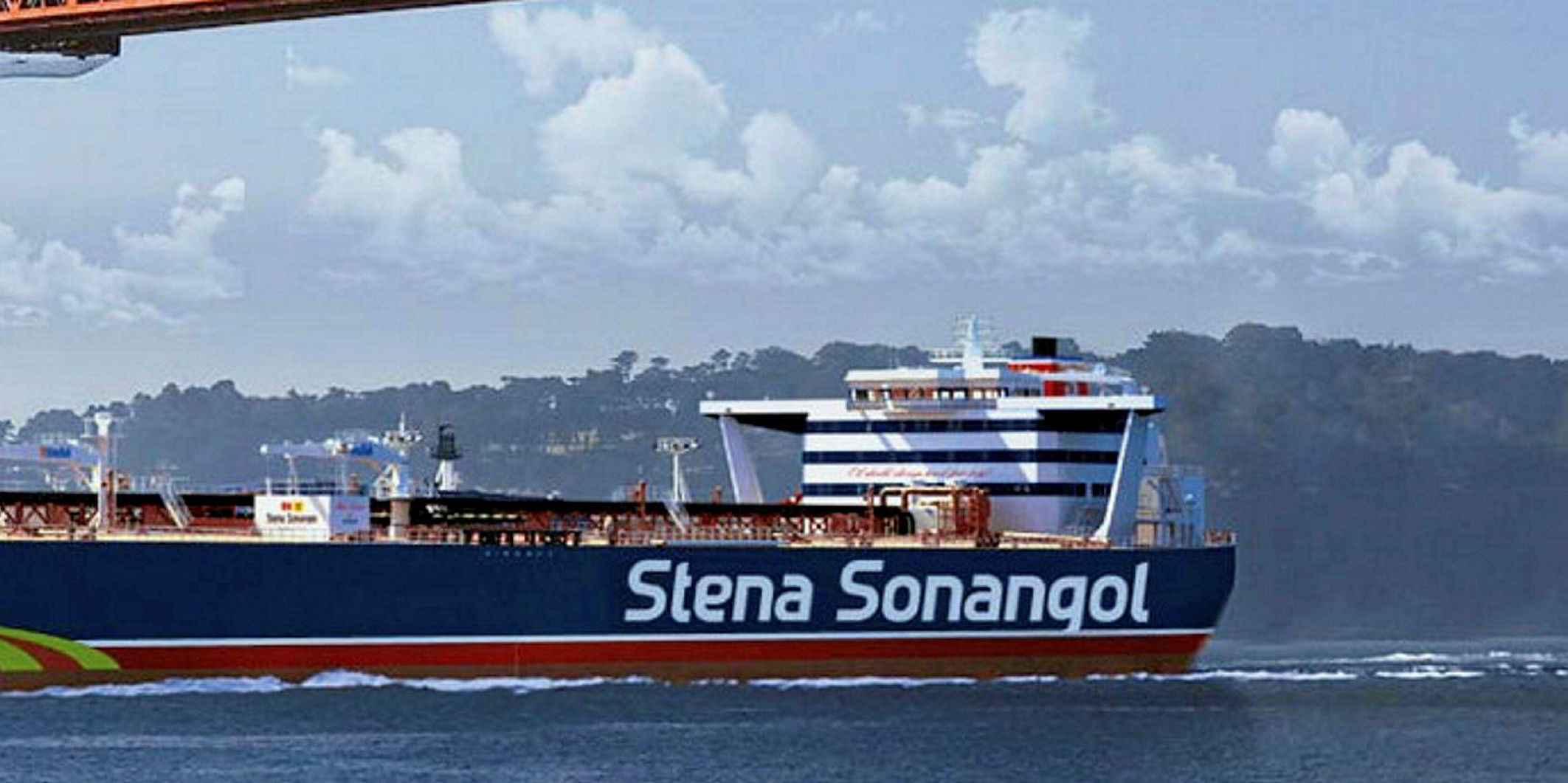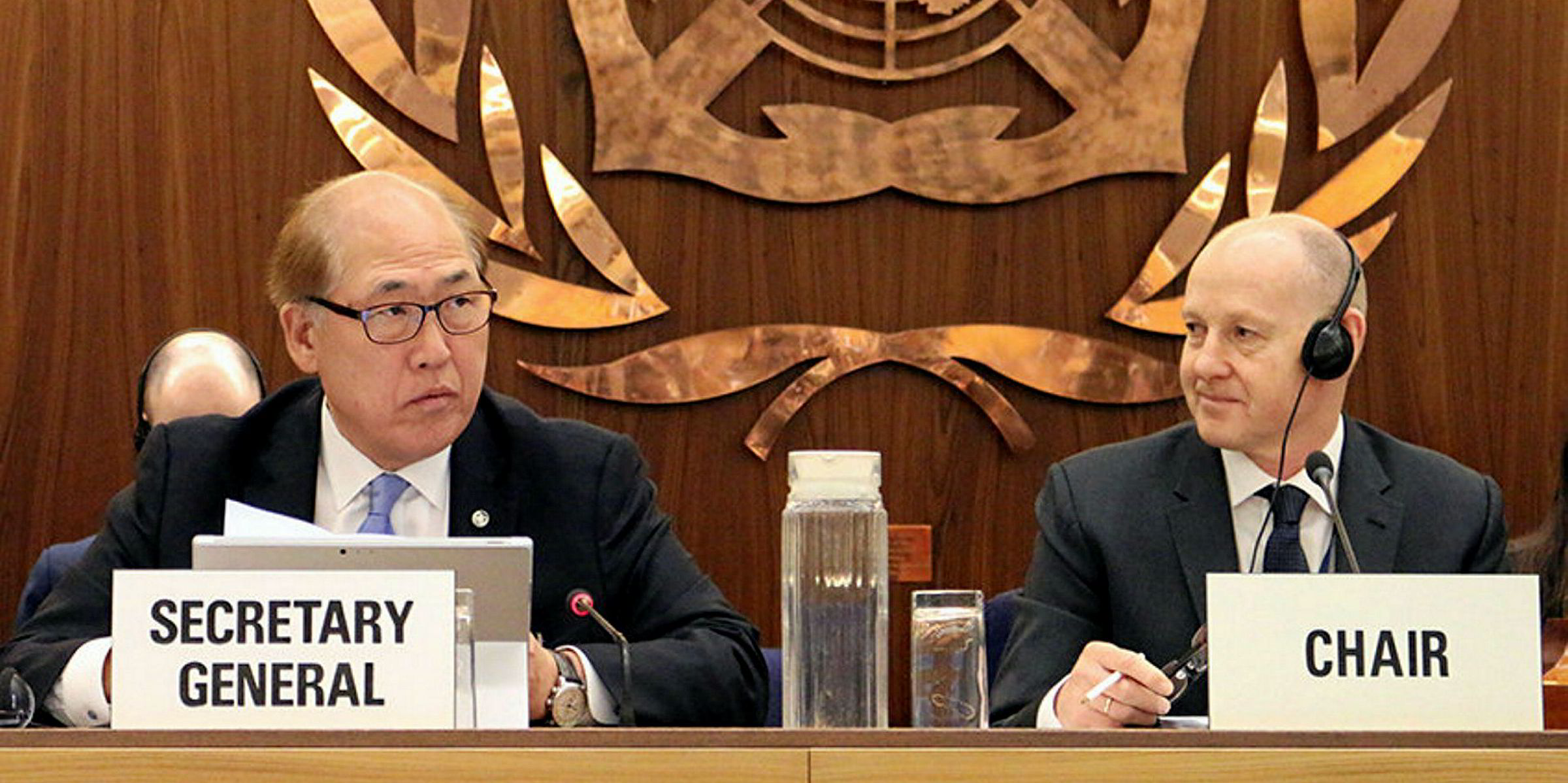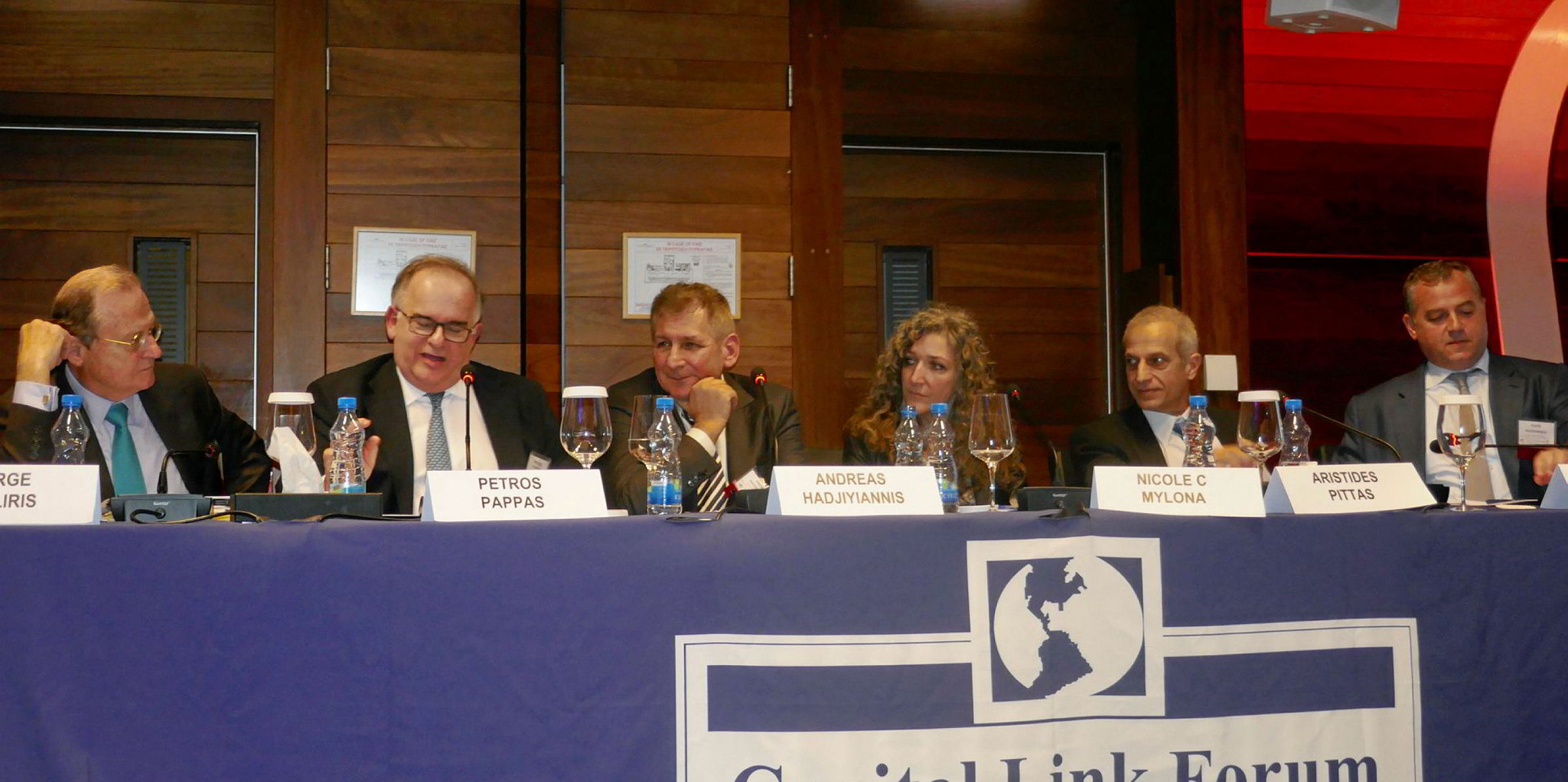We are living in what has been called a “post-truth age”, in which emotion and opinion often overwhelm objective facts in mainstream politics and debate.
Now the passionate debate over the IMO’s 2020 emissions rules has shown that shipping is as exposed to this trend as any other area of discourse.
During IP Week in London last month, a range of executives complained about business challenges arising from the switch to cleaner fuel.
“There are no major investments in [upgrading fuel refining facilities] because the preparation period [has been] too short,” one refining official said.
Meanwhile, 3,200 kilometres away in Limassol, Cyprus, there was strong criticism of the IMO at a Capital Link forum.
“There are too many ifs and too many uncertainties,” Cyprus Union of Shipowners president Andreas Hadjiyiannis said. “It’s so obvious that it is all going to end up in a mess and they will have to take it all back.”
Familiar criticism
Those complaints would sound much more justified, if similar criticism had not been repeated in multiple industry forums for more than a year.
It suggests that some people remain unwilling to accept the reality of IMO 2020 — a worrying sign, given that the rules come into effect in less than 10 months.

It is worth having a brief fact check. It was in October 2016 that the IMO confirmed that global marine fuel sulphur limits would be reduced from 3.5% to 0.5% from 2020, except for those vessels that have scrubbers onboard or can be fuelled by LNG.
Since then, there have been discussions at the IMO to refine associated rules. But the principle has not changed.
It was always acknowledged that it would take time for refineries to optimise their production, for shipowners to decide on fuel options, and for bunker blenders and physical suppliers to find ways to bridge the gap between producers and consumers.
But except for a few instances — such as investing in billion-dollar projects at refineries — those in the bunker supply chain have had ample time to prepare.
It is also true that the IMO probably should have moved much more quickly on providing enforcement guidelines, especially for exhaust gas cleaning systems. But the same can be said for most major regulatory changes.
Moreover, national governments will be the actual enforcement bodies, so it will fall to them to clarify the rules. Continuing to attack the IMO and depict it as a demon divorced from its member nations is missing the point.
Some industry resistance to IMO 2020 appears to be rooted in misconceptions.
Worries remain that there are no common fuel standards for 0.5% sulphur blends and that they can be unstable, fail to comply with the International Convention for the Safety of Life at Sea flashpoint rules, or have quality issues.
In fact, the International Organization for Standardization has been updating its ISO 8217 parameters for this purpose.
“The fact is fuels will still be blended and sold in accordance with ISO 8217 to be commercially viable,” a bunker veteran said during IP Week.
But some industry concerns may simply result from irrational views.

“A lot of discussions have happened for a long time,” a trader said. “If you believe in scrubbers, then you believe in scrubbers. If you believe in 0.5%-sulphur fuels, then you believe in 0.5%-sulphur fuels. The discussions will still be going on for a long time.””
Let’s get down to basics
A more constructive approach, as the International Bunker Industry Association (IBIA) director Unni Einemo suggested, would be to get down to the basics.
Einemo said shipowners should decide on their fuel options, clean tanks and reconfigure fuel systems before training crews for the switch, while suppliers should prepare infrastructure and carry out bunker testing.
The two sides should also enhance communications, she advised. “Buyers need to tell suppliers what they want.”
Some industry players are hoping that the IMO may delay the bunker rules at the last minute, as it did with the Ballast Water Management Convention. That is thought unlikely because of the damage it would cause shipping, internally and externally.
Many owners and bunker suppliers have started to prepare for the new fuels, and industry estimates show at least 2,500 ships will be fitted with scrubbers. It would be unfair to see these companies take a financial hit for those that are unwilling to prepare, hoping there will be enough players like them to put pressure on regulators.
Moreover, the aviation and road transport sectors have been burning fuels with much lower sulphur contents for years. It would not be justifiable for shipping to cling on to its claim of exceptional status. Trucost, an environmental analysis firm owned by S&P Global, estimates that external costs of bunker fuel emissions could be reduced by 27% next year due to IMO 2020.
Like it or not, the new regulations are coming, so it’s better to prepare than whine.






